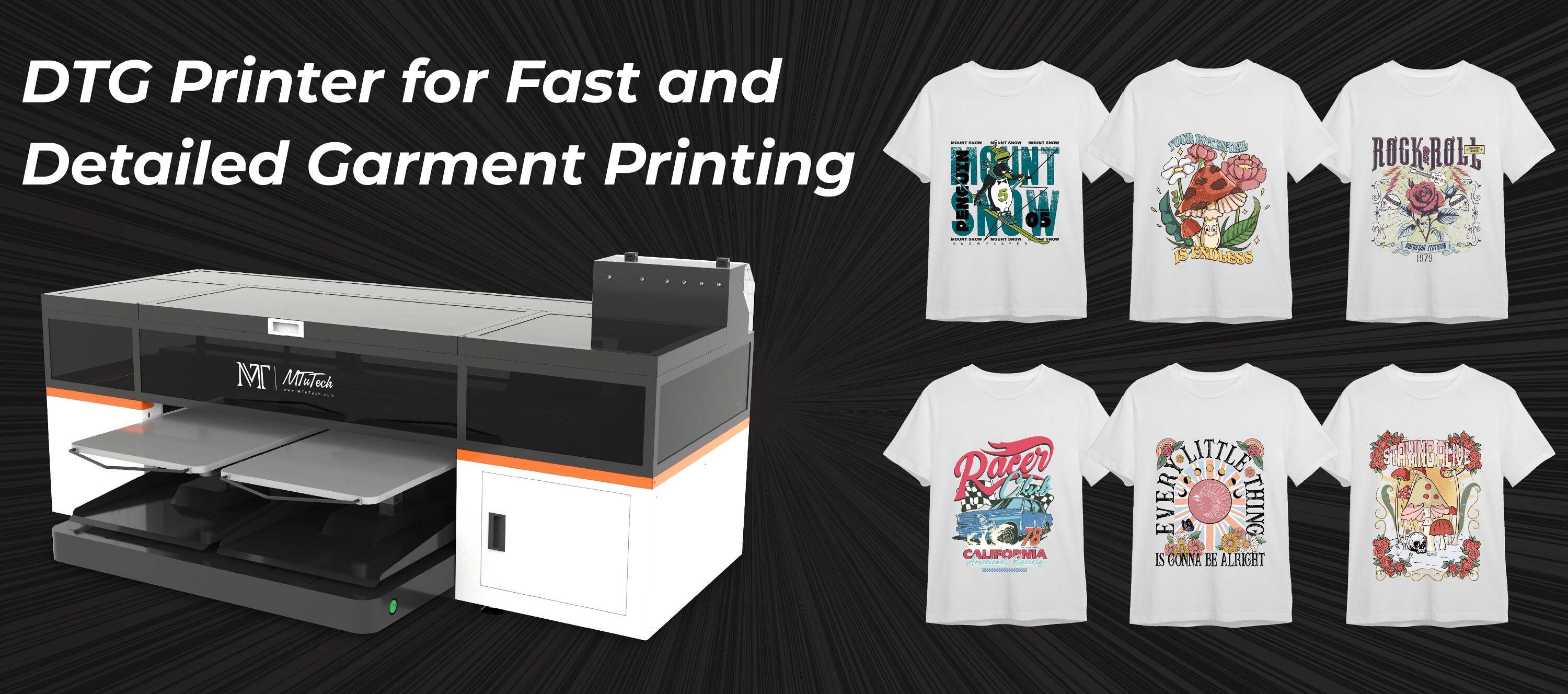Whether you are a seasoned professional in the digital printing industry or a novice looking to dive into direct-to-garment (DTG) printing, choosing the correct printer is a crucial step. With various options available, it can be challenging to decide on the perfect printer that fits your needs. In this blog, we discuss the most popular DTG printer brands, including Epson, Brother, Ricoh, and more, and make comparisons to guide you in finding your ideal DTG printing solution.
Introduction
DTG printing is a technology that has revolutionized the textile industry, offering unprecedented flexibility and creativity in printing designs on fabric. Gone are the days of screen printing's long setup processes and limitations in color variety. DTG printers allow full-color, high-resolution print output directly onto garments with minimal setup and incredible detail. With numerous brands offering their versions of DTG printers, it's fundamental to understand how they compare.
Benefits of DTG Printing
High-Quality Output
DTG printers are known for their ability to print highly detailed, vibrant, and durable designs. They offer excellent precision, which is essential particularly for complex designs.
Variety and Flexibility
These printers can print on a wide range of textile materials, including cotton, polyester, and blended fabrics. Moreover, they allow on-demand printing, letting you print unique designs for individual customers.
Economical for Small Runs
DTG printing is cost-effective for small to medium-sized print runs as it requires minimal setup and can print different designs without additional costs.
Comparing Top DTG Printer Brands
Epson
Epson is a trusted name in the printing industry, known for its advanced PrecisionCore printhead technology, offering high-speed, high-quality printing. Epson DTG printers also include integrated self-cleaning systems that enhance their lifespan and maintain optimal performance. They are generally user-friendly and offer excellent color accuracy.
Brother
Noted for its robust build and reliability, Brother's DTG printers provide high-quality printing without sacrificing speed. They feature specially formulated inks for high washability and color vibrancy. Additionally, Brother printers have straightforward maintenance routines and helpful technical support.
Ricoh
Ricoh's DTG printers are renowned for their robust build, smooth operation, and innovative features like automatic head-cleaning functions. They utilize Ricoh's proprietary inks formulated for excellent adhesion, color brightness, and durability.
More Brands
Numerous other brands are worth considering. For instance, Kornit is appreciated for its eco-friendly water-based Neopigment inks and quick printing times. MUTOH offers a balance of quality, performance, and price, making them suitable for businesses of all sizes Explore our high-quality DTG printers here.
Conclusion
Choosing the right DTG printer involves considering multiple factors, from the quality of print, printer reliability, maintenance needs, and of course, budget. Epson, Brother, and Ricoh each offer reliable printers with their strengths. It's crucial to consider your specific printing needs and make the right choice for your business.
FAQs
What are the advantages of DTG printers over traditional screen printing?
DTG printers offer remarkable flexibility, allowing on-demand printing with no limit on color usage. Additionally, they deliver higher quality prints with more detailed designs and better color accuracy compared to traditional screen printing.
Can DTG printers print on darker fabrics?
Yes, modern DTG printers are capable of printing on dark fabrics. They use white ink underbase on darker garments to ensure color vibrancy of the print.
How long does a print from a DTG printer last?
The longevity of a DTG print depends on the garment material and the care extended to it. But with good care, a DTG printed garment can last for several years.
What consideration should I make when choosing a DTG printer?
You should consider aspects such as printing speed, print quality, printer reliability, ease of maintenance, and cost per print when choosing a DTG printer. Identify your business needs first, as what suits one printing business might not necessarily suit another.

